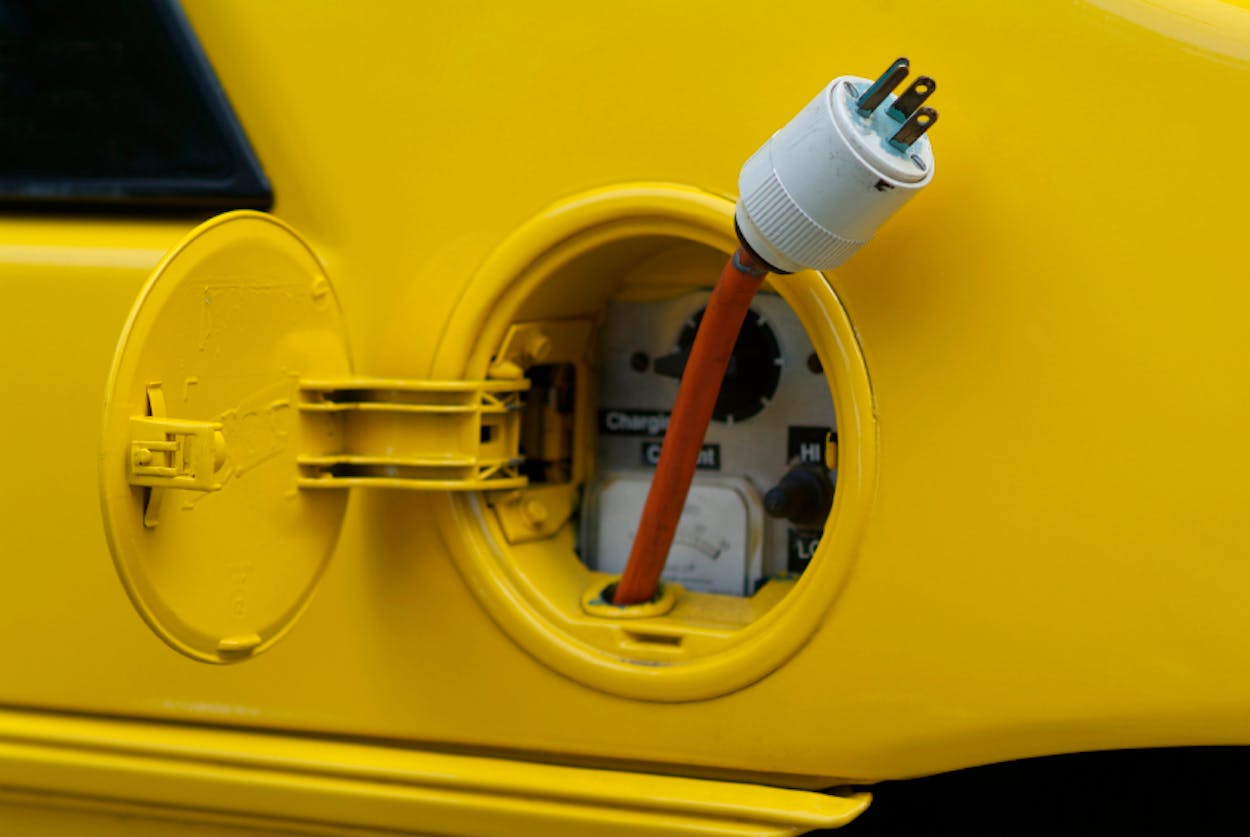The Texas economy is one of the most robust in the world. Wildly profitable companies and ingenious entrepreneurs call this state home, and what happens here influences businesses around the nation. Here’s a slice of the profits, losses, big deals, and backroom decisions happening across Tex
Electric Cars Won’t Shock the System
The popularity of electric cars is expected to grow in the coming years, raising questions about whether Texas’ already-struggling grid can support the increased demand for electricity. This week the head of the Electric Reliability Council of Texas told a Senate committee that there’s no cause for concern just yet.
ERCOT CEO Trip Doggett said “he doesn’t believe even widespread adoption of electric vehicles would have any negative effect on the transmission system,” StateImpact Texas reports. However, while ERCOT is not worried about electric cars causing problems in the short term, the long-term picture depends on the availability and affordability of fuel sources to power the grid.
The Bottom Line: Another factor to consider is the impact not just on the statewide grid, but also on local electricity distributors in markets where the vehicles are most popular. Such “localized challenges” could arise if people charge their cars during peak summer hours, according to StateImpact.
Scott & White and Baylor Unite
A forthcoming merger between Temple-based Scott & White Healthcare and Dallas-based Baylor Health Care System will create “the largest not-for-profit health system in the state,” according to the Dallas Business Journal. Robert Pryor, the president and CEO of Scott & White, will lead the new system, which “would have $7.7 billion in combined assets and include 42 hospitals, 4,000 active physicians and 34,000 employees.” The deal is expected to take effect next year.
The Bottom Line: Healthcare company mergers are becoming increasingly common in response to policy changes including the Affordable Care Act, which will restructure the ways the industry does business, the DBJ reports.
Getting the Dell Out of Carolina
Dell is moving closer to finally parting ways with a former North Carolina manufacturing plant it shuttered two years ago due to growing competition in Asia. The Austin American-Statesman reported this week that nutrition company Herbalife Ltd. has agreed to pay the Round Rock–based computer maker $22.2 million for the factory, which manufactured built-to-order desktop PCs from 2005-2010.
North Carolina state and local governments had originally agreed to give Dell $240 million in incentives to locate the plant in Winston-Salem, according to the Statesman. When the factory closed, Dell agreed to return all the money it had already been given.
The Bottom Line: In addition to Dell’s Austin server manufacturing plant, the company also has operations in China, where its original custom-built PC model has been supplanted by “mass-produced, low-cost machines.”
Winners of the Week: Houston Realtors
Houston’s real estate market has been at the forefront of the national housing recovery this year, and the region appears to be positioned for continued success, the Houston Business Journal reported this week. The real estate industry tracking firm Trulia ranks the Houston metro area at the top of its projected list of the country’s healthiest housing markets for 2013, beating out 2nd-place San Francisco and Maryland’s Bethesda-Rockville-Frederick area, which came in third. Other Texas cities in the top ten were San Antonio (fourth), Austin (fifth), and Fort Worth (ninth).
Losers of the Week: Texas Oil Producers
The recent sale of large government oil leases in California has prompted speculation that Texas could lose its title as the nation’s top oil producer within the next decade. The U.S. Bureau of Land Management sold 18,000 acres of land southeast of San Francisco to several California companies last week, Bloomberg reports.
The oil-rich Monterey Shale could hold more than 15 billion barrels of oil—which would constitute nearly two-thirds of “all estimated U.S. shale oil reserves and double the combined reserves of North Dakota’s Bakken Shale and Texas’ Eagle Ford Shale.” California is currently the number three oil producer in the U.S., after Texas and Alaska.






